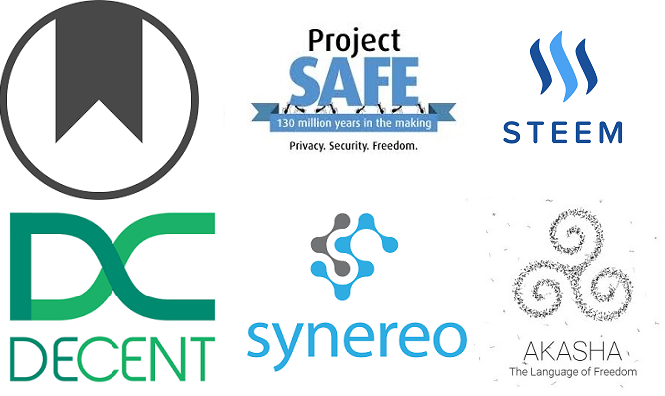
Through its success, Steem could become a trailblazer for a decentralized media revolution. A range of other exciting projects are waiting to push through the doors that Steem has opened – and if they too can succeed then that will be good for Steem as well! They should not be seen as competitors, but as co-conspirators in a plot to take on the established media.
Basing media publishing around democratic peer-to-peer networks has many advantages, including things like resistance to censorship or political manipulation, privacy protections, direct financial relationships between content producers and consumers without middlemen, new economic models to support independent media and more. Although the desirability of these things will be obvious to many, the role of decentralization and blockchain technology themselves in supporting these things is not always so easy to explain to regular folks. What's more, radically new ways of doing things often take time and effort to build trust among the public.
The more successful projects there are in this area the more people will automatically associate decentralization and blockchains with the common advantages it offers. People will have fewer barriers to trusting each subsequent project once they have become familiar with one. And on a business level, the success of Steem may also make it easier for future projects to raise money for development as the concept has to a certain extent already been proven.
Although Steem is already a remarkable cryptocurrency success story, it is still very, very far from being a media / social media success story. This is a massive market and only the tiniest corner of it has so far been touched by this revolution.
Just as Steem may help other projects following in its wake to have greater success than they otherwise would have, so they in turn will feed back into the success of Steem as together we take on the established players. Of course some of these newcomers may compete fairly directly with Steem, but even this may not be a threat – after all Twitter didn't do anything to damage the success of Facebook. Many of them will not compete any more than Reddit competes with Amazon Prime.
With that said, here is a brief introduction to some of the main players at the moment:
Safe Network
With a grand vision to 'decentralize the internet' there are many different use cases for Safe. At its heart is a kind of decentralized cloud storage network which promises a great balance of efficiency and reliability through de-duplication and controlled redundancy. It also offers very high levels of privacy.
This could be a great alternative to torrents for file sharing, as well as a new way to publish websites and apps. Although it doesn't contain a social aspect in its core protocol, social media apps could and almost certainly will be built on top of it.
Alexandria
Alexandria combines IPFS with the Florincoin blockchain. It offers both free content (with the option to tip) and premium content that you can buy with Bitcoin. You can either stream or download movies, videos, music and more.
Alexandria is actually the most well established project and has been around for a while with some great tech, but has largely failed to attract users – perhaps the success of steem will start to change that!
Lbry
This is a mineable chain with no ICO, and looks to me like it will be kind of similar to Alexandria. It hasn't fully launched yet though, and details are still somewhat thin on the ground.
Decent
Decent seems to be focusing mainly on premium content, providing a decentralized alternative to services such as iTunes or Netflix. It will also be possible to post free to view content on their platform though.
There is an ICO expected in the next month or two.
Akasha
While the first four projects are primarily based around decentralized publishing, Akasha is much more focused on the social media possibilities. It is being built on Ethereum and is also expected to have an ICO soon.
Synereo
Another social network based on Ethereum, Synereo has some really advanced tech and top developers, and wants to build an 'attention based economy' in which users can choose to opt-in to advertising and be rewarded for their attention.
As fans of Steem, I hope you will take the time to look into these exciting projects and support any which you find interesting!